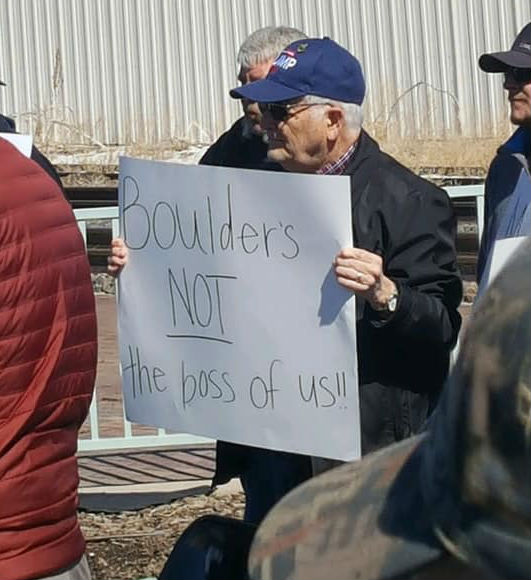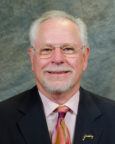GREELEY — Pam Evans knew it was going to be a long night for she and her staff at the Homewood Suites by Hilton in Greeley. Bomb Cyclone hit, selling out the extended-stay hotel to more than 300 guests, many of whom were stranded for the night because of the weather. But if Senate Bill 181 passes, Evans and others in the hotel industry in Weld County worry about their ability to keep their doors open.
Despite the only employees working that night were Evans and two others, the free drinks and food the hotel offers every evening as benefit of staying there went on.
But what came after was what meant most to Evans, who said she wasn’t shocked by what happened, but instead, reminded about an industry that has made Greeley and Weld County what it is.
“Most of the time you will get a handful of people that will take you up on it,” Evans, General Manager of Homewood Suites by Hilton in Greeley said of the complimentary meal. “But since everything was closed, and no one could go anywhere, we fed everyone here. But when it was over, I had 10 of my regular gas and oil guys get up, do dishes, take out trash, wipe down tables, pull the food back to the kitchen, vacuumed, swappped out kegs in my bar. They are not just sitting here taking advantage. And this is just one building, one place. These are the nicest people I’ve ever had the pleasure to serve. And they did this without even being asked.”

But it’s not just their personalities or willingness to help that makes those in the oil and gas industry important, Evans said. It’s what they mean to the Greeley economy.
Evans testified about the impact Senate Bill 181 would have on the economy before the General Assembly on behalf of 14 hotels in Greeley.
SB 181 would make sweeping and drastic changes to oil and gas drilling in Colorado, a move that many say will likely send some counties into almost immediate recession, including Weld, which is the largest producer of oil and gas in Colorado.
Evans said the 14 hotels she spoke on behalf of employ about 500 residents and bring in about $5 million in annual revenue to the city.
Fifty percent of the rooms in those hotels are booked with oil and gas employees, she said, adding it’s likely half the hotels’ workforce will lose their jobs as a result.
“And a lot of my team members are spouses of oil and gas workers,” Evans said. “They got jobs here when their spouses moved into the area, so if they move out of the area, I lose those people.”
Moving is not unlikely, she said. In conversations with some of her customers, companies are already warning their employees they will likely be moving if SB 181 passes, possibly as far away as Saudi Arabia.
That also worries Evans, who is on the Greeley Tourism Board. She said Greeley tourism overall could be hurt by a decline in oil and gas because if the hotels can’t make it, they will close, leaving Greeley without available lodging.
“We’ve worked really hard to fix the tourism here,” she said. “Tourism in Weld County generated $23 million last year. But once your hotels close up, it’s a ripple effect; then your restaurants go down. Then retail goes down. And then before you know it, you have a ghost town, and tourism doesn’t happen here.”
Evans said she just doesn’t understand what people who want to drive the industry out of the state are not seeing.
“Oil and gas pay for our roads; they are paying for our schools; they donate to the food bank, Evans said. “They are not just coming in and tearing up the land, padding their pockets and moving out. They get into the communities and have really made a big difference here.”

No one knows better about what the oil and gas industry has done to help a community where one-in-five cannot afford to eat better than Bob O’Connor, Chief Executive Officer for the Weld Food Bank.
O’Connor, who does not support or oppose the bill, advocates on behalf of what oil and gas companies and their employees have done for the Weld Food Bank over the years.
O’Connor told Complete Colorado that the food bank serves more than 58,000 people per year, and the oil and gas industry’s time, money and commitment is a big portion of how they get it done.
Of the $2.3 million per year in the Weld Food Bank’s fundraising budget revenue, oil and gas donates about 16 percent (about $400,000).
“That is significant,” O’Connor said. “That is very significant for us. They bring in a substantial amount, but what I can’t pinpoint is how many of their employees donate individually, or how many other local businesses donate because of the impact oil and gas has on their businesses, and what that would look like (if oil and gas was not here). That is something we can’t quantify, but I’m sure it’s considerably more.”
Over the past five years O’Connor said oil and gas has provided 10.5 million meals, more than 10,000 volunteer hours, nearly $200,000 in a new vehicles and other equipment.
“During the 2003 flood, they were the first people I reached out to,” O’Connor said. “They came in literally in droves and helped raise more than 57,000 pounds of food in 36 hours. Then they came in and helped pack it and deliver it and get it out to the shelters. They’ve been a great partner for hunger relief in Weld County for many, many, many years.”

Greeley Mayor Pro Tem Robb Casseday said in the short term, City of Greeley finances should be OK, but only because they budgeted for the possibility that Proposition 112 would pass last fall. He doesn’t know how SB 181, should it pass, will impact the city when more and more oil and gas employees move out.
“We did not throw a bunch of our budget against the taxes that we would stand to gain off gas and oil,” Casseday told Complete Colorado. “Then if we had some surprises at the end of the year, we could roll that into some really good programs.”
But Greeley only budgets two years at a time, and by the next budget period, Greeley and Weld County could be in the midst of a full recession.
“At that point last year, it was anybody’s guess what was going to happen in November,” Casseday said about when they approved the budget. “I think the last thing we thought, and we didn’t even think about or even consider was how the whole legislative branches were going to turn over and what was going to be the result. They couldn’t care less what the voters think.”
Casseday is trying to remain optimistic because most of the drilling in Greeley is relatively new and will continue for a while, he said, but he did say new permits will likely never exist in city limits again, and the ripple effect could be troublesome for many industries in Greeley and Weld County.
“Obviously, it’s going to have an effect, with Greeley being one-third of Weld’s population,” Casseday said. “That is a significant part of the population that is directly related and can be effected by whatever happens in the oil and gas industry. So that has to be taken seriously.”
Editors Note: This is the first in a series of stories about how the passage of Senate Bill 19-181 will impact Weld County’s economy.


